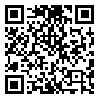Fri, Feb 20, 2026
[Archive]
Volume 38, Issue 1 (1-2024)
Med J Islam Repub Iran 2024 |
Back to browse issues page
Download citation:
BibTeX | RIS | EndNote | Medlars | ProCite | Reference Manager | RefWorks
Send citation to:



BibTeX | RIS | EndNote | Medlars | ProCite | Reference Manager | RefWorks
Send citation to:
Malgard S, Panahi S, Nemati Anaraki L, Asadzandi S, Ghalavand H. The Procedures for Documenting Organizational Knowledge and Experiences: A Scoping Review. Med J Islam Repub Iran 2024; 38 (1) :222-229
URL: http://mjiri.iums.ac.ir/article-1-8958-en.html
URL: http://mjiri.iums.ac.ir/article-1-8958-en.html
Department of Medical Library and Information Science, School of Health Management and Information Sciences, Iran University of Medical Sciences, Tehran, Iran , panahi.s@iums.ac.ir
Abstract: (1760 Views)
Background: The present study was motivated by issues with earlier studies on documenting knowledge and experiences. This scoping review investigates and maps the procedures for documenting organizational knowledge and experiences.
Methods: Following the PRISMA (Preferred Reporting Items for Systematic Reviews and Meta-Analyses) extension for Scoping Reviews (PRISMA-ScR) guidelines, a scoping review was conducted. Data were obtained by searching PubMed, Web of Science, Scopus, ProQuest, Embase, and Emerald Insight databases and Persian databases, such as Magiran, Noormags, and Ensani. The selected terms were searched using the Boolean AND/OR operators, phrases, parentheses, and truncations in the title, abstract, keywords, and text word fields. The inclusion criteria were resources relevant to the research question, studies in English and Persian, original research articles, and resources published between 2011 and 2022. Finally, 8 related papers were selected as the research population after screening records.
Results: The review of the selected studies indicates that there have been different steps for documenting knowledge and experiences according to the subject's scope and the goals of the studies. The included articles revealed numerous steps for documentation—including planning, acquisition, registration, evaluation, submission, maintenance, publication, application, payment, and compensation.
Conclusion: Although a systematic mechanism for documenting knowledge and experience is essential, many processes and phases are offered for documentation. Therefore, a complete review that synthesizes and integrates past study findings must still be included. Several shortcomings in past research on documenting knowledge and expertise prompted the present study. The results of the present study can be of great use to managers and employees of various organizations in topics such as the creation of standards for documenting knowledge and experiences, organizational-structural planning in this field, and training on different documentation methods.
Methods: Following the PRISMA (Preferred Reporting Items for Systematic Reviews and Meta-Analyses) extension for Scoping Reviews (PRISMA-ScR) guidelines, a scoping review was conducted. Data were obtained by searching PubMed, Web of Science, Scopus, ProQuest, Embase, and Emerald Insight databases and Persian databases, such as Magiran, Noormags, and Ensani. The selected terms were searched using the Boolean AND/OR operators, phrases, parentheses, and truncations in the title, abstract, keywords, and text word fields. The inclusion criteria were resources relevant to the research question, studies in English and Persian, original research articles, and resources published between 2011 and 2022. Finally, 8 related papers were selected as the research population after screening records.
Results: The review of the selected studies indicates that there have been different steps for documenting knowledge and experiences according to the subject's scope and the goals of the studies. The included articles revealed numerous steps for documentation—including planning, acquisition, registration, evaluation, submission, maintenance, publication, application, payment, and compensation.
Conclusion: Although a systematic mechanism for documenting knowledge and experience is essential, many processes and phases are offered for documentation. Therefore, a complete review that synthesizes and integrates past study findings must still be included. Several shortcomings in past research on documenting knowledge and expertise prompted the present study. The results of the present study can be of great use to managers and employees of various organizations in topics such as the creation of standards for documenting knowledge and experiences, organizational-structural planning in this field, and training on different documentation methods.
Type of Study: Systematic Review |
Subject:
Medical Library and Information Sciences
Send email to the article author
| Rights and permissions | |
 |
This work is licensed under a Creative Commons Attribution-NonCommercial 4.0 International License. |








